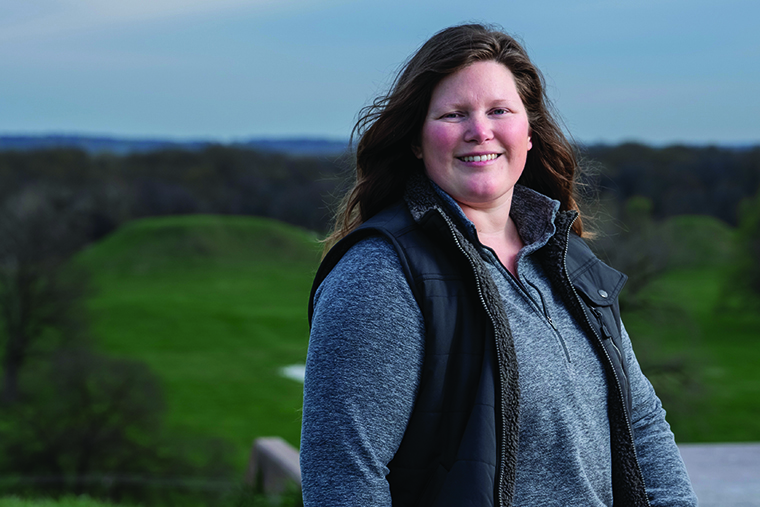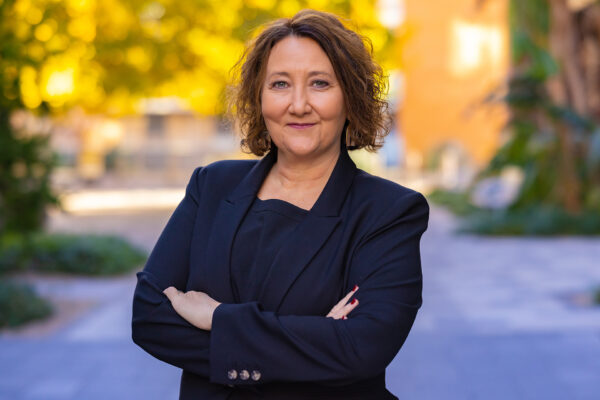Caitlin Rankin, MA ’16, PhD ’20, conducts research that is, literally, groundbreaking. By analyzing soil -traces at the Cahokia Mounds World Heritage Site in southern Illinois, 20 miles from WashU, she is unlocking mysteries and dispelling theories about Cahokia’s abandonment 600 years ago.
A self-described “backyard archaeologist,” Rankin, now a research scientist at the University of Illinois Urbana-Champaign, grew up in western Pennsylvania and found her academic calling in childhood. “My dad was a contractor, so he operated heavy equipment,” she says, “and I spent a lot of time at his field sites, just a bored kid playing in the dirt.” Upon discovering a fish fossil one day, Rankin’s interest in stratigraphy — the study of what layers of ground and rock (strata) can reveal about the geological time scale — turned into a passion.
Her interest in Cahokia Mounds came naturally, as well. “I would be on the backhoe or bulldozer with my dad seeing this process of moving earth,” she says. “These Mississippian people were also earth movers, building huge mounds and manipulating their environment. It’s something that’s easy for me to recognize, peeling back the layers to understand what the environment was like before the Cahokians built it and what is human versus what is natural.”
Rankin’s interests culminated in studying geoarchaeology in WashU’s prestigious Department of Anthropology in Arts & Sciences. There, she was inspired by scholars John Kelly, T.R. Kidder and Gayle Fritz. She also benefited from being a student near her research site: “It was more of a connection,” she says.
At WashU, she made a discovery that disproved the widespread theory that Cahokia’s decline resulted from deforestation followed by erosion and flooding. Using heavy equipment, much like her father had years before, Rankin extracted samples from the site’s soil. After applying stable carbon isotope analysis, she could interpolate what the environment was like at various times in the past. It turned out that the soil was telling a different story.
“Paradigms are always shifting.”
Caitlin Rankin
Rankin’s research identified that some mounds in the low-lying North Plaza had been built around existing water features (possibly to reflect spiritual beliefs regarding the sky, sea and earth). But unexpectedly, she also found clear evidence that there wasn’t recurrent flooding consistent with wood overuse until long after Cahokia’s decline, and then only in strata coinciding with Euro-American settlement. The deforestation theory didn’t hold up.
“Paradigms are always shifting,” she says. “Now, we’re trying to find a middle ground that’s maybe more realistic of what was actually happening.”
Does this mean that Cahokia’s abandonment can be explained? Not yet. But whatever factors led to Cahokia’s decline, Rankin’s research reminds us that the best answers lie within the most grounded of questions.



